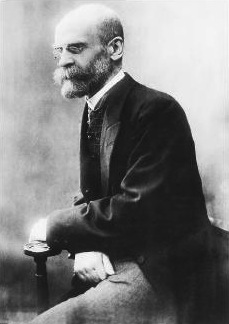As of last week, we have been publishing Dr Emmanuel Tourpe‘s ” Mini-com courses ” twice a week. The confinement due to the coronavirus has at least had the merit of giving Emmanuel the idea to write these mini-courses that he first published on Facebook. The quality of the explanations called for a wider distribution of his thoughts.
We would like to thank him for agreeing to publish his “mini-com courses” on our blog. Don’t forget to check the other opus: mini-com courses #1, #2 and #3.
In today’s text, Emmanuel offers us a fascinating journey into the world of Donald Trump. This text entitled “Manipulating without convincing: the limits of trumpery” echoes the mini-com course n°2 entitled “Convince without manipulating“. Today it is all the emptiness and inefficiency of Donald Trump’s speech that Emmanuel deciphers with talent.
Mini-com course n°4
« Manipulating without convincing: the limits of trumpery »
Can you influence an election (like Trump’s) or a vote (the Brexit) by manipulating people? We remember the “Cambridge Analytica” scandal where everyone cried wolf after a now-defunct company collected the personal Facebook data of more than 87 million people. The analysis of this data made it possible to send targeted messages to voters in an attempt to influence their vote. Trump would have been elected on this scam.
Is that even possible? The whole history of communication theories precisely shows that it is not.

The popular press was already accused at the end of the 19th century of pushing people to commit suicide. In essence, the great sociologist Emile Durkheim then examined the question and masterfully dismissed this hypothesis. All subsequent research will confirm the same thing until J.T.’s definitive work. Klapper (1960): no, the media cannot permanently and profoundly influence people’s opinions.
Further research (the “Reception studies” of the 1960s and 1970s) will even increasingly show the decisive role of audiences, each reader or listener, in the way they receive or interpret messages. At most, it is possible to confirm and solidify existing opinions or to attract attention. No, Cambridge Analytica has not been able to influence American voters in depth. No, the British did not vote for Brexit because they were brainwashed. That is not true from a communication point of view.
However, strategies for manipulating opinion do exist, although it is doubtful whether they have sufficient influence. The most famous is the one defined in the United States in the late 1930s by the “Institute for Propaganda”. It laid down 7 rules that are still used in marketing and politics:
- Name-Calling (devaluing the opponent)
- Glittering Generality (use attractive terms for your product)
- Transfer (associating the product with a positive imaginary)
- Testimonial (have a muse support the product)
- Plain Folks (show that ordinary people and common sense go with the product)
- Card Stacking (showing the product in a false good light by omitting for example to show its defects)
Look at any publicity you will find many of these elements.
Much more interesting is the possibility of opposing propaganda and manipulation through counter-information. An absolute genius in this field was Tchakotin: during the rise of Nazism in Germany he crossed out all swastikas with his famous “three arrows” (still in use in some circles). Wherever Tchakotine acted, the Nazi party scored considerably lower than elsewhere. We know these famous 3 arrows (“against Papen’s conservative party, against Hitler and the communists”).
So, manipulation exists. Its effects are uncertain. One thing is sure: we can’t give up on it, and individual (vigilance, education, critical thinking) and everyday actions can make up for it. In communication, as in everything else, freedom and the human spirit hold the key, not algorithms or manipulation.
Illustrations : Europeana, Shutterstock, Wikipedia
Posted in Misc..

